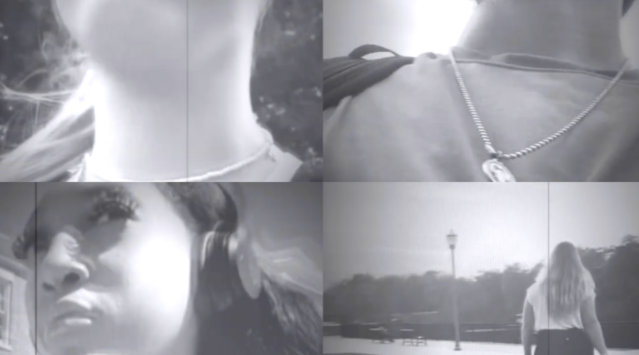In the 11th grade, telecommunication and film professor Rachel Raimist was faced with the task of answering one of life’s essential questions: film school or monkeys?
This question stemmed from Raimist’s early ambition to become a zoologist after developing a particularly close relationship with a monkey she visited at a local mall in her hometown of Middletown, N.Y., which she describes as Tuscaloosa without the University. It was only after her friend suggested she participate in one of UCLA’s summer programs for theatre, art and film that she was forced to abandon her passion for primates in exchange for permission to attend the program.
“After I went to film school, when I resolved that I wasn’t going to be a monkey handler, once I let go of that dream, I realized I loved holding the camera and I loved making movies,” Raimist said. “Once I took the camera from the boys – because all the boys had all the cameras, the girls had to be in front of the camera – then I was totally hooked.”
The only remnants of Raimist’s childhood dream are a modest collection of stuffed monkeys and proud ownership of a dog and two cats; however, her decision to attend film school has paid off exponentially. Raimist is credited with making the first documentary about women in hip-hop, has won numerous awards and has gained national attention for many of her films.
Five years ago, Raimist brought her expertise to Tuscaloosa, where she is currently an assistant professor in the telecommunication and film department at the University and head of A/V for the Tuscaloosa Amphitheater. Also, she has recently been made co-director of the University’s Creative Campus, a student-led arts advocacy organization.
“We’re still figuring out ‘what is creative campus?’ and ‘how do we want it to work?’ and ‘what is its purpose on this campus?’” Raimist said. “But it feels really great to work with other working artists. It’s not just an academic art conversation or just a practitioner academic conversation, but it’s fully integrated on both sides.”
After years working between New York and California in the entertainment industry, doing everything from magazine work to hip-hop to fashion to filmmaking, Raimist has settled into a slower pace in Tuscaloosa with her two children ,but she said her life is anything but stagnant.
“It’s the juggling of being a mom, a professor, a mentor and a working artist,” Raimist said. “It’s kind of a choose-your-own-adventure. I designed this so that even when I’m tired, it’s still a really good, fulfilling tired.”
Raimist uses her experience in the industry to teach her students to be reliable, prompt and, as she puts it, “have the skills to pay the bills.” Hank Lazer, executive director for Creative Campus, said the combination of Raimist’s professional expertise and passion for developing students’ talents has been invaluable to her success as a mentor and professor.
“She knows that students can do great work, and she has a special gift for encouraging students to do their very best,” Lazer said. “In other words, her own energy and enthusiasm are contagious.”
As an instructor in film with a doctorate degree in feminist studies, Raimist encourages her women students to take a hands-on approach to their work. Raimist said part of her interest in feminism came from working in the sexist, misogynistic world of hip-hop, but another part of it came from growing up with two brothers and seeing her parents treat them differently from her.
“Growing up, no one told me as a girl I could be technical,” Raimist said. “Being in front of the camera, I felt exposed. When I was behind the camera, I felt powerful. I could frame a story. I could show what I thought needed to be put on screen.”
For Raimist, one of the major moments in her career was the debut of her first feature-length film for her master’s thesis at UCLA. At the time, documentaries were a less-popular form for student film, and documentaries about women in hip-hop were even less popular.
When Raimist began working on her documentary “Nobody Knows My Name,” she was pregnant with her first child. By the time the film was screened, her daughter had been born, and both of Raimist’s parents had passed away. The screening marked the one-year anniversary of her mother’s death. Raimist said the experience of becoming a mom while losing a mom made the day all the more memorable.
“When the lights came up after the film and everyone was clapping and standing up, and I’m holding my daughter, that felt like the beginning of something important,” Raimist said. “It was a key moment, because it showed me that despite all of the discouragement that I had received as a young woman, if I put my mind on something, I will find a way through and make it happen.”
Although Raimist’s life has changed in many ways since her days of making movies about hip-hop and travelling nonstop across the country, she said one mantra has remained as a common theme in both her personal and professional endeavors: “If you make something that’s important to you, the people will come.”
——-
Note: “women students” is a term that Raimist used because she said saying “female students” is a feminism issue.








